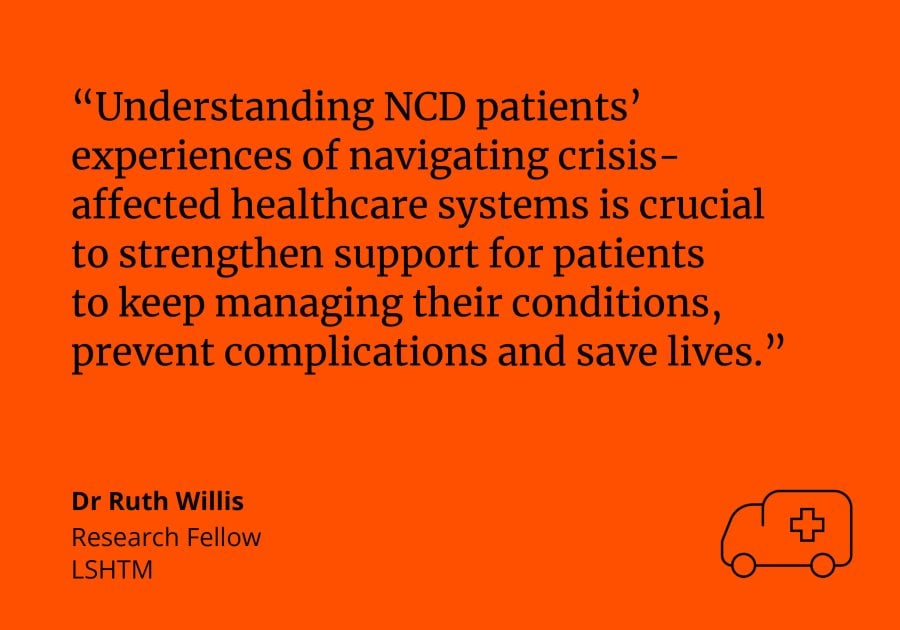Families shoulder the burden of care for chronic conditions in humanitarian settings
11 December 2023 London School of Hygiene & Tropical Medicine London School of Hygiene & Tropical Medicine https://lshtm.ac.uk/themes/custom/lshtm/images/lshtm-logo-black.png
When we think of health care needs in humanitarian settings what often first comes to mind is immediate life-saving care, interventions to treat wounds or curb the spread of infectious diseases. What gets forgotten is that among the almost one billion people living in fragile and conflict-affected settings many live with non-communicable diseases such as diabetes or high blood pressure. We still don’t know enough about patients’ experience of accessing care and the role their families and communities play in supporting them. Caring for a chronic condition requires regular access to a health care provider and to medicines, something that is difficult to maintain in a fragile or humanitarian situation where basic services are interrupted and a patient may not be able to see a health care provider on a continuous basis.
For this new study we interviewed Syrian refugees and vulnerable Lebanese patients on their experiences receiving care for non-communicable diseases at health facilities supported by humanitarian organisations in Lebanon. We found that most people experienced disrupted and non-linear pathways in trying to maintain care for their conditions. They had to rely heavily on their families and support networks to access continued care and treatment for their condition.
We identified three categories of patients, those that felt they were able to manage their condition; those that saw the management of their condition as fragile; and those that felt unable to manage their condition adequately. A majority described their situations as falling into the latter two categories. Whether they were able to maintain their care continuously depended on factors such as affordability and availability of medication, ability to navigate the health care system, as well as family and mental health support.
Based on our findings we see the need to take action to ensure that we both recognise and act to reduce the treatment burden for patients and caregivers and work to better understand the role social support networks play in maintaining care for patients living with NCDs in humanitarian settings. We need to strengthen efforts to integrate NCD prevention and early diagnosis, and also mental health support, into existing humanitarian assistance programmes. We see a clear need for shared evidence-based clinical guidelines, to facilitate continuity of care, as well as strengthened efforts to work with Ministries of Public Health to strengthen existing primary care systems and coordination with the humanitarian sector.
Further information can be found in this issue brief.
LSHTM's short courses provide opportunities to study specialised topics across a broad range of public and global health fields. From AMR to vaccines, travel medicine to clinical trials, and modelling to malaria, refresh your skills and join one of our short courses today.